How Russia’s invasion of Ukraine has impacted sport
Saint Petersburg has lost the Champions League final and the F1 Russian GP has been cancelled
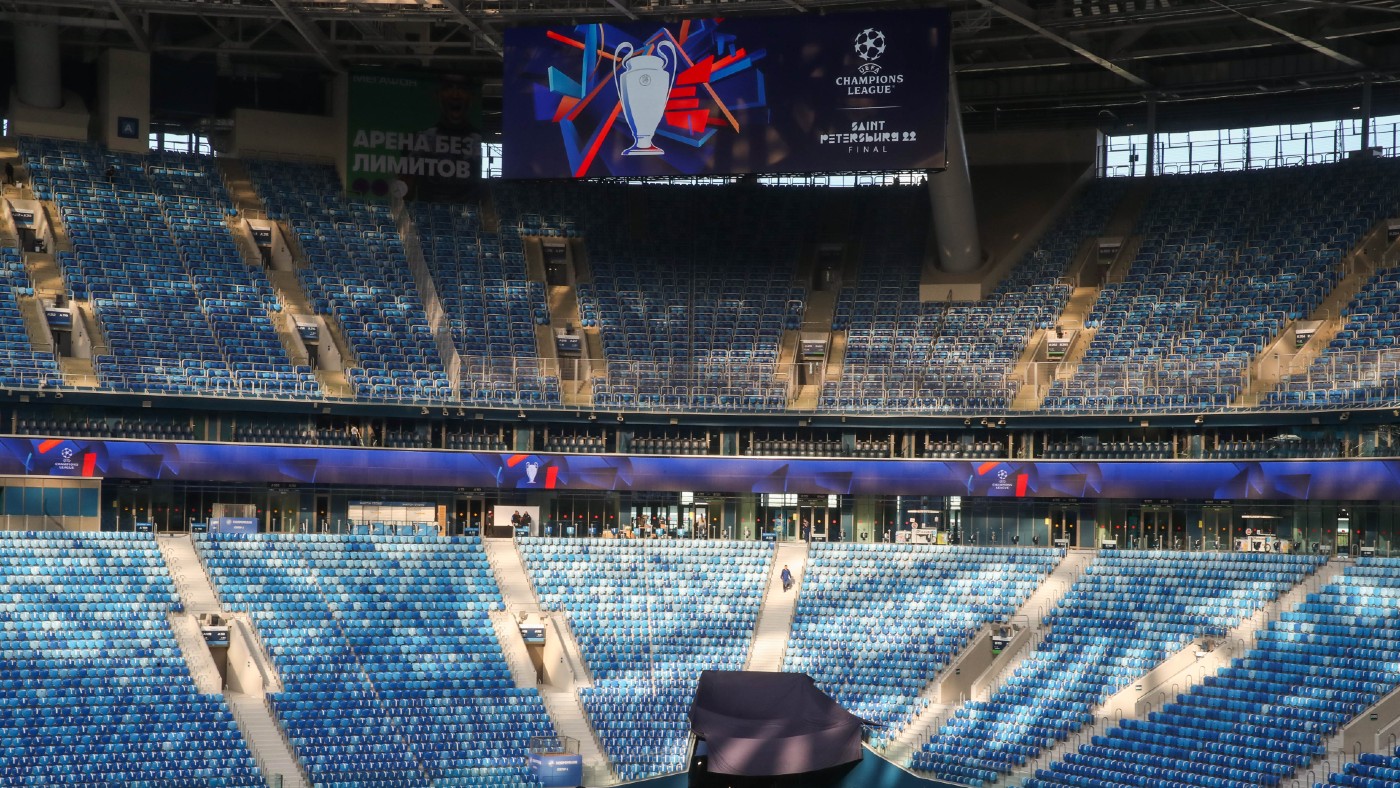
A free daily email with the biggest news stories of the day – and the best features from TheWeek.com
You are now subscribed
Your newsletter sign-up was successful
It’s not just the stock markets and oil prices that have been affected by the Russian invasion of Ukraine, but also the sports industry.
Following Vladimir Putin’s announcement of military action, Russia is “facing expulsion on all major sporting fronts” due to the fallout, the Irish Independent said. And sporting bodies across Europe are taking “guidance” from national governments in the wake of the invasion.
Here we break down how the invasion has impacted sport in both countries and what it means for the hosting of major sporting events.
The Week
Escape your echo chamber. Get the facts behind the news, plus analysis from multiple perspectives.

Sign up for The Week's Free Newsletters
From our morning news briefing to a weekly Good News Newsletter, get the best of The Week delivered directly to your inbox.
From our morning news briefing to a weekly Good News Newsletter, get the best of The Week delivered directly to your inbox.
Uefa Champions League final
St Petersburg was scheduled to host the 2022 Uefa Champions League final on Saturday 28 May. But following an emergency meeting, European football’s governing body has confirmed that the match will now be played at the Stade de France in Paris.
The final was due to be held at the Krestovsky Stadium – which is known as the “Gazprom Arena” due to a title sponsorship deal with the Russian energy giant. The 68,000-capacity stadium in Putin’s home city also hosted matches at the 2018 Fifa World Cup and Uefa’s Euro 2020 tournament.
Russian Football Union (RFU) president Alexander Dyukov said he “could not support” the move, the BBC reported. Dyukov, who serves on Uefa’s executive committee and is CEO of Gazprom subsidiary Gazprom Neft, added: “We believe the decision was dictated by political reasons. The RFU has always adhered to the principle of ‘sport is out of politics’.”
Kremlin spokesman Dmitry Peskov said it was a “shame” that such a decision has been made. “St Petersburg could have provided all favourable conditions to hold this festival of soccer,” he told reporters.
A free daily email with the biggest news stories of the day – and the best features from TheWeek.com
It is the “third year running” the Champions League final venue has been moved, the BBC said. The 2020 and 2021 finals were switched because of the pandemic.
Sponsorship deals: Gazprom and Aeroflot
Russian energy firm Gazprom is a major sponsor of European football, including the Uefa Champions League. Uefa is facing “mounting pressure” to terminate the ties it has with the firm, the FT said.
German club Schalke 04 have also moved to cut ties with Gazprom. Schalke, one of Germany’s biggest football teams, have removed the name of sponsors Gazprom from their shirts.
In England, Premier League giants Manchester United have terminated the sponsorship agreement it had with Russian airline Aeroflot. As part of Russian sanctions, Aeroflot has been banned from trading in the UK, the Daily Express reported. In a statement United said: “In light of events in Ukraine, we have withdrawn Aeroflot’s sponsorship rights. We share the concerns of our fans around the world and extend our sympathies to those affected.”
Football in Ukraine and Russia
Ukraine’s domestic football league was meant to restart today after the post-winter break. But now matches have been paused for a minimum of 30 days. “After the imposition of martial law in Ukraine, the championship draw has been suspended,” the league said in a statement.
Dynamo Kyiv, one of Ukraine’s biggest clubs, “proclaimed their resistance” to the invasion, the Irish Independent said. “We are on our land, and we will not give it to anyone,” the club stated. “For us – the truth, for us victory! We will definitely win, and Ukrainians from Uzhgorod to Lugansk, from Chernihiv to Sevastopol will be proud that they are citizens of a great state called Ukraine.”
Uefa also confirmed that Russian and Ukrainian clubs and national teams competing in Uefa competitions will be required to play their home matches at neutral venues until further notice, Sky Sports reported. Spartak Moscow will be affected as they are still in the Europa League, where they play RB Leipzig over two legs in the round of 16 next month.
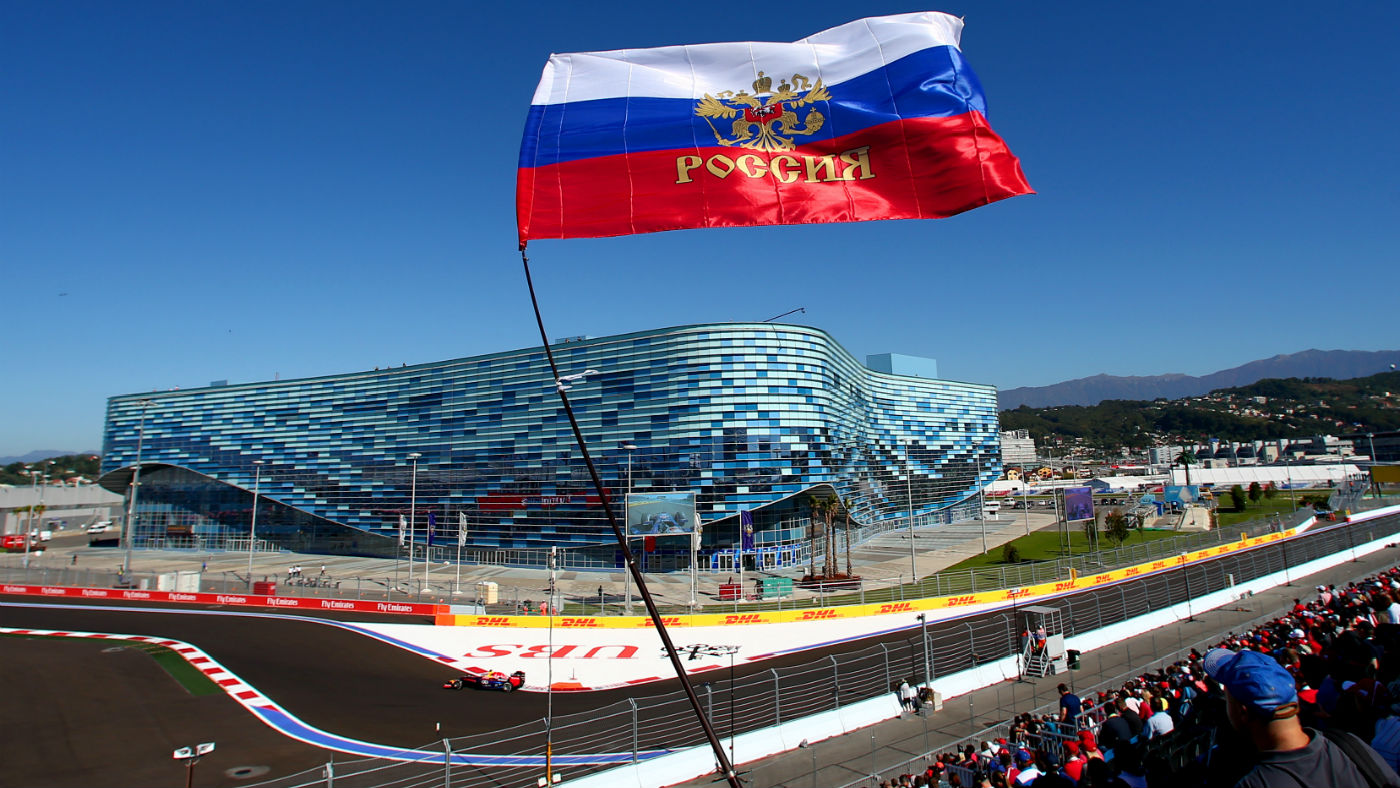
F1: Russian GP and Nikita Mazepin
This year’s Formula 1 Russian Grand Prix, which was scheduled to take place at the Sochi Autodrom on 25 September, has been cancelled. F1 said it was “impossible” to hold the Russian GP in the current circumstances.
F1 has made “no suggestion” of which country might replace Russia on the 2022 calendar, The Guardian said. Turkey has been mooted as a possible location, but F1 is “understood to not be considering the Istanbul Park Circuit as an option this time”.
There’s also “uncertainty” surrounding the Haas F1 Team, The Race said. Haas has removed the branding of its title sponsor Uralkali and team principal Guenther Steiner has admitted that the position of Russian driver Nikita Mazepin “needs to be resolved”.
Mazepin is the son of major Uralkali shareholder Dmitry Mazepin – a close associate of Putin. At pre-season testing today in Barcelona, he will drive the Haas VF-22 car which will go out on track with a plain white livery, minus Uralkali branding.
Invasions and the Olympics
Russia’s invasion of Ukraine comes just a few days after the end of the Beijing 2022 Winter Olympic Games. Many thought the Russians would not take any action until after the games were over – and that was “to avoid upstaging China”, said NPR’s Frank Langfitt.
The “distraction” of the Olympic Games has “been an ingredient” in Putin’s aggressive foreign policy in recent years, said Tim Fernholz on Quartz. “In other words, it’s a great time to invade somewhere else.”
There’s certainly “some history” involving Russia’s military action and the Olympics, CNN reported ahead of Beijing 2022. When Russia annexed Crimea in 2014, it occurred just as the Winter Olympics in Sochi were wrapping up and in 2008 Russia invaded Georgia when the Summer Olympics were happening.
Putin has spent three of the last eight Olympic Games either “invading a country or coming awfully close to doing so”, said Michael Rosenberg on Sports Illustrated. The timing in Ukraine was “probably coincidental” – it is hard to believe Putin would think the world would let him invade a country because it is “so distracted by the bobsled, or if you prefer: the bobsleigh”. Rosenberg added: “This does not bode well for my book proposal, The Art of War During Bobsled/Bobsleigh”.
Mike Starling is the former digital features editor at The Week. He started his career in 2001 in Gloucestershire as a sports reporter and sub-editor and has held various roles as a writer and editor at news, travel and B2B publications. He has spoken at a number of sports business conferences and also worked as a consultant creating sports travel content for tourism boards. International experience includes spells living and working in Dubai, UAE; Brisbane, Australia; and Beirut, Lebanon.
-
 The environmental cost of GLP-1s
The environmental cost of GLP-1sThe explainer Producing the drugs is a dirty process
-
 Greenland’s capital becomes ground zero for the country’s diplomatic straits
Greenland’s capital becomes ground zero for the country’s diplomatic straitsIN THE SPOTLIGHT A flurry of new consular activity in Nuuk shows how important Greenland has become to Europeans’ anxiety about American imperialism
-
 ‘This is something that happens all too often’
‘This is something that happens all too often’Instant Opinion Opinion, comment and editorials of the day
-
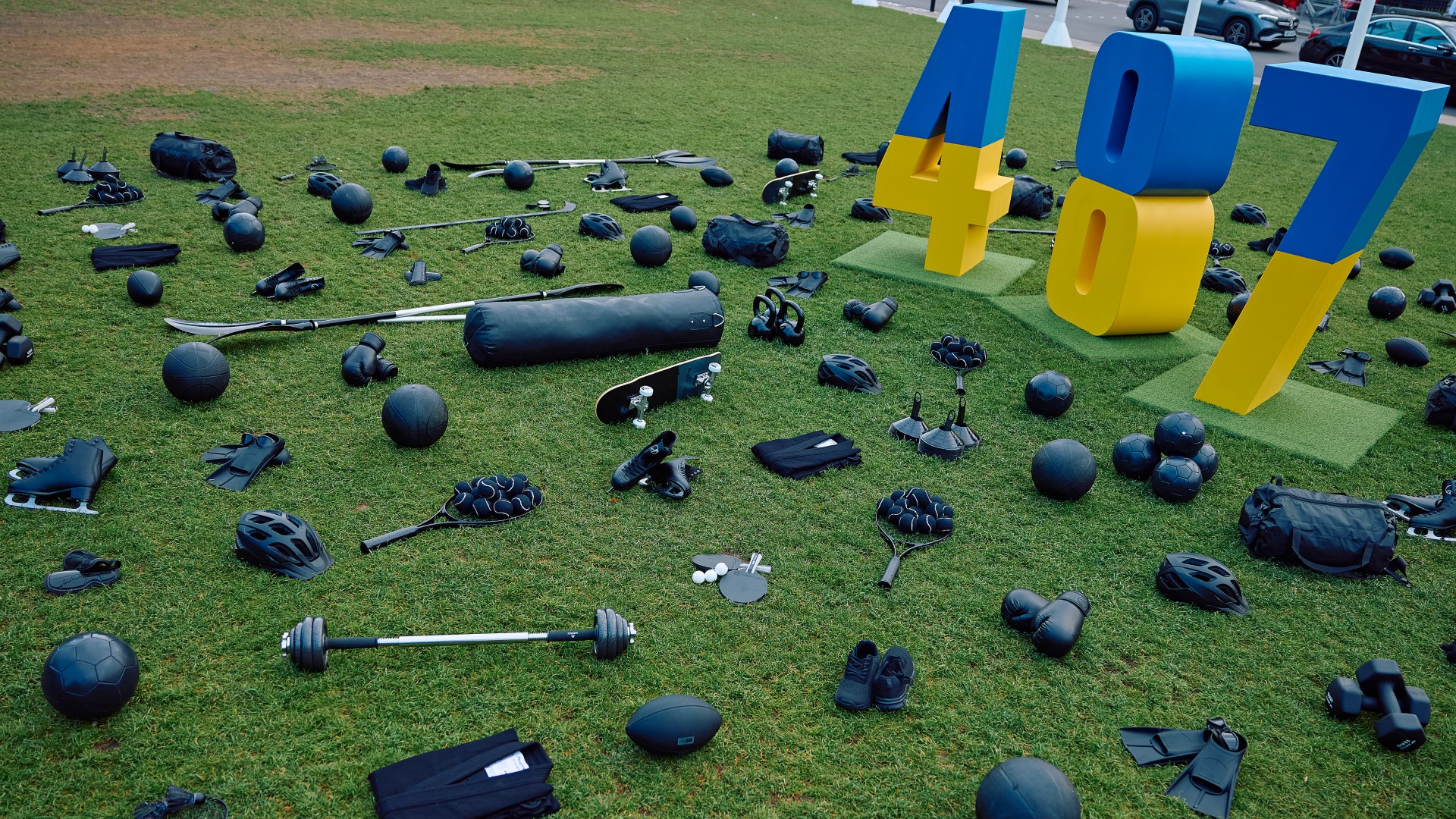 Ukraine's Olympians: going for gold in the line of fire
Ukraine's Olympians: going for gold in the line of fireUnder the Radar Hundreds of the country's athletes have died in battle, while those who remain deal with the psychological toll of war and prospect of Russian competitors
-
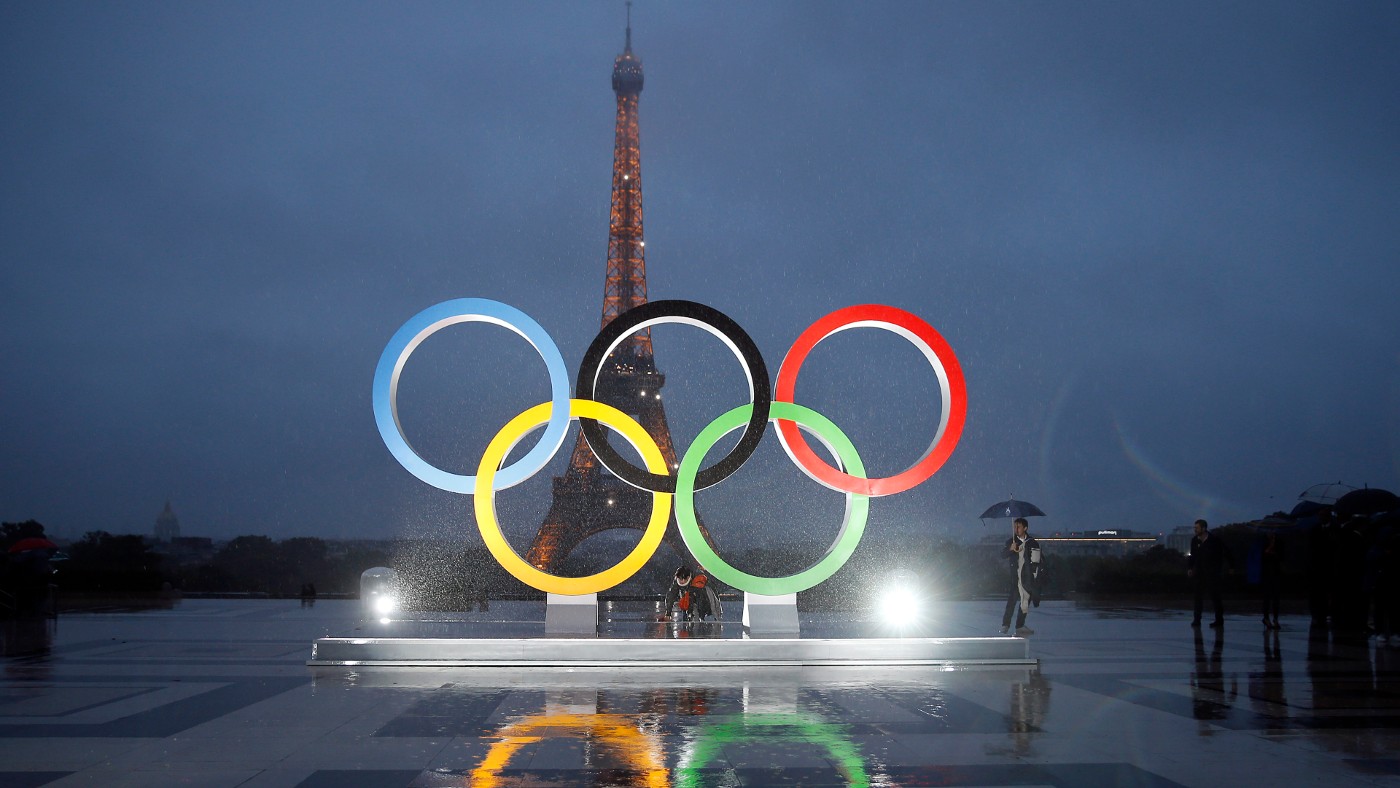 Paris 2024 Olympics: a guide to the Games
Paris 2024 Olympics: a guide to the GamesIn Depth Everything you need to know about the biggest event in sport
-
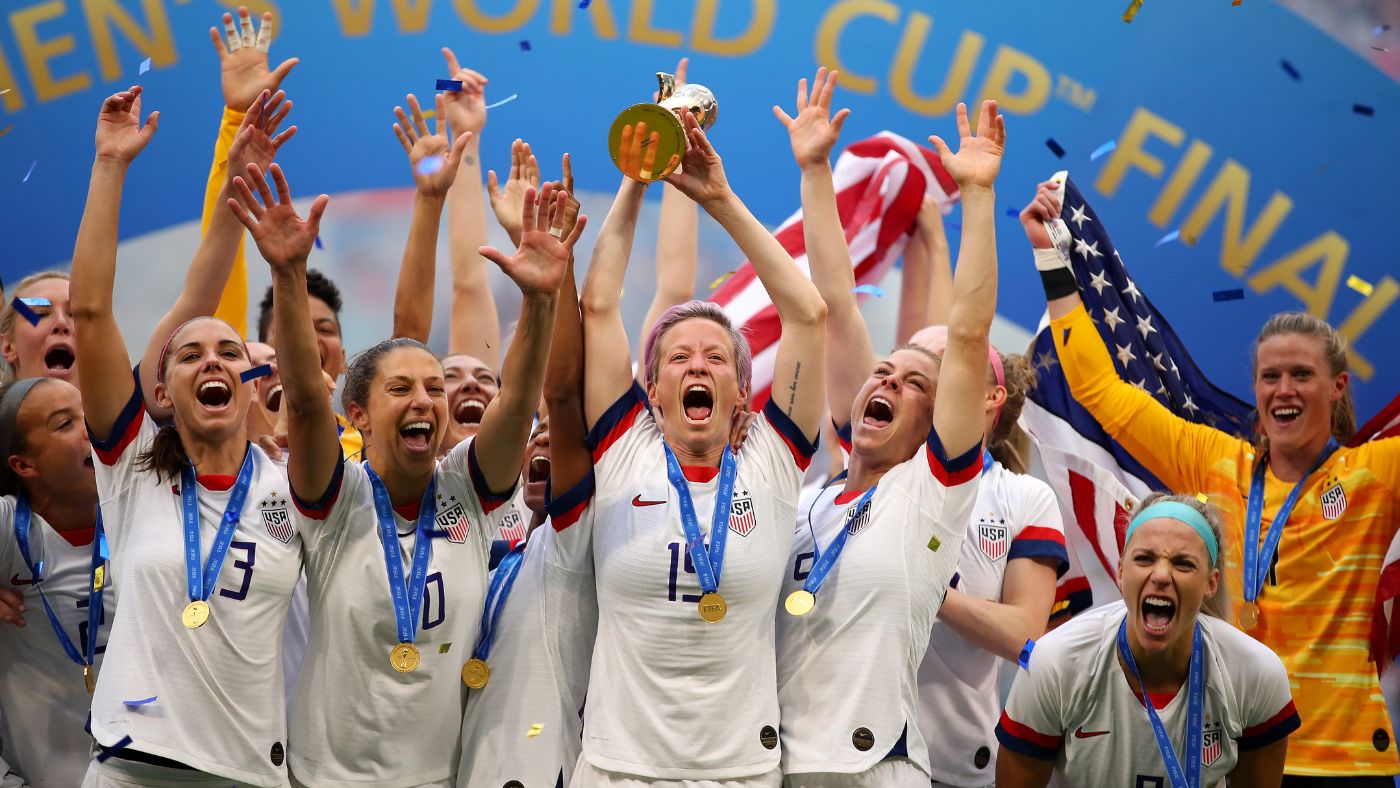 2023 Fifa Women’s World Cup: fixtures, groups and UK TV coverage
2023 Fifa Women’s World Cup: fixtures, groups and UK TV coveragefeature Tournament in Australia and New Zealand will be broadcast live on the BBC and ITV
-
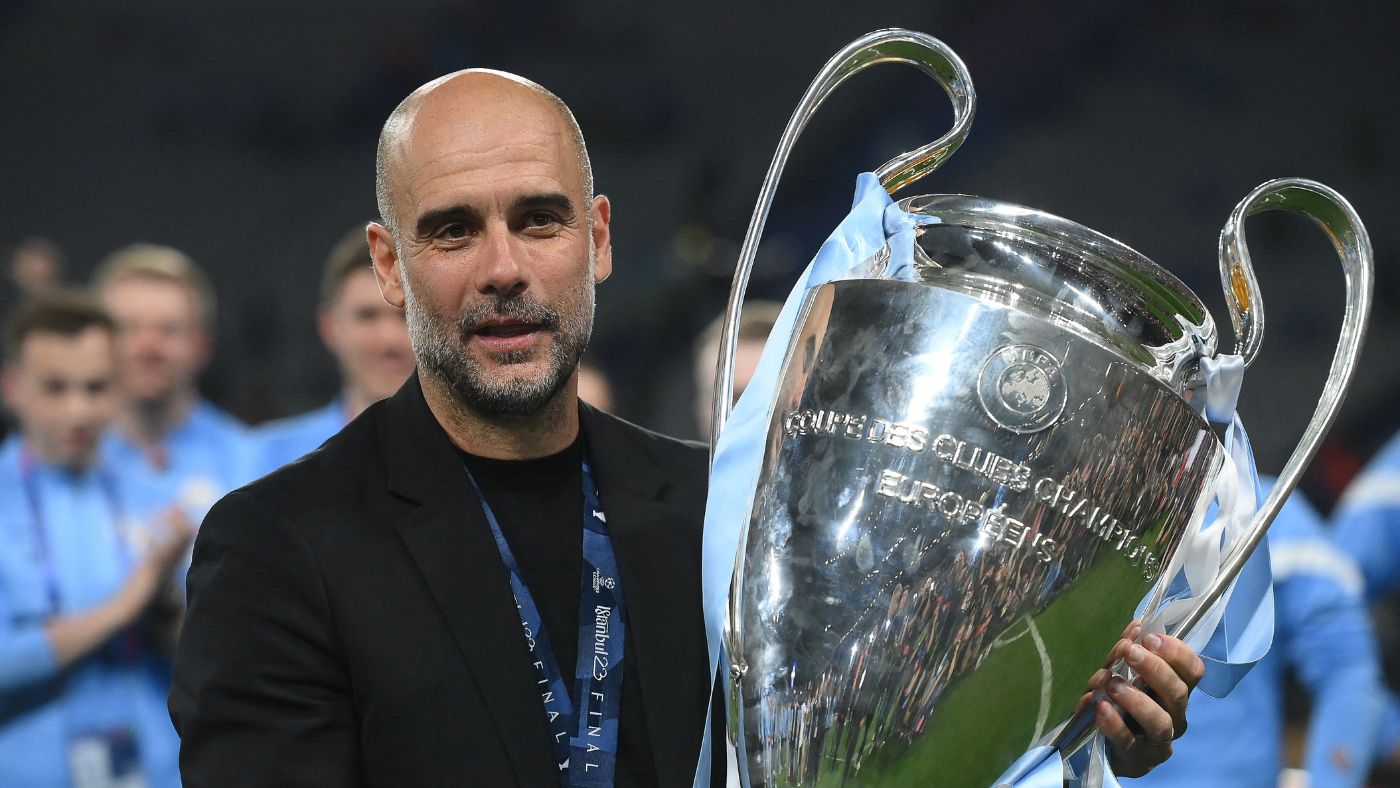 ‘Genuine visionary’: is Pep Guardiola the greatest of all time?
‘Genuine visionary’: is Pep Guardiola the greatest of all time?feature Spaniard has now won two trebles following Man City’s Champions League triumph
-
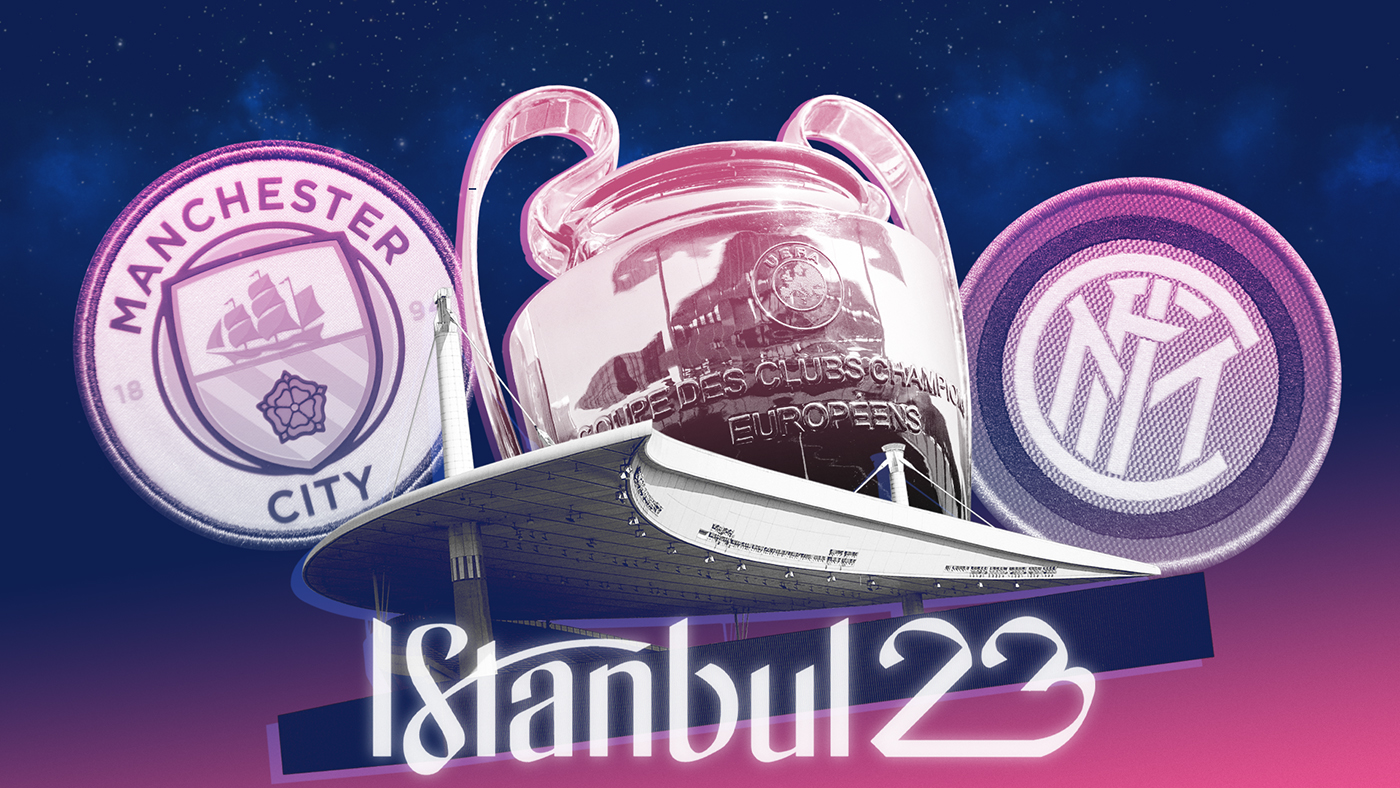 Champions League final: Man City vs. Inter predictions and preview
Champions League final: Man City vs. Inter predictions and previewfeature Can Guardiola’s team finally win the Champions League and complete a historic treble?
-
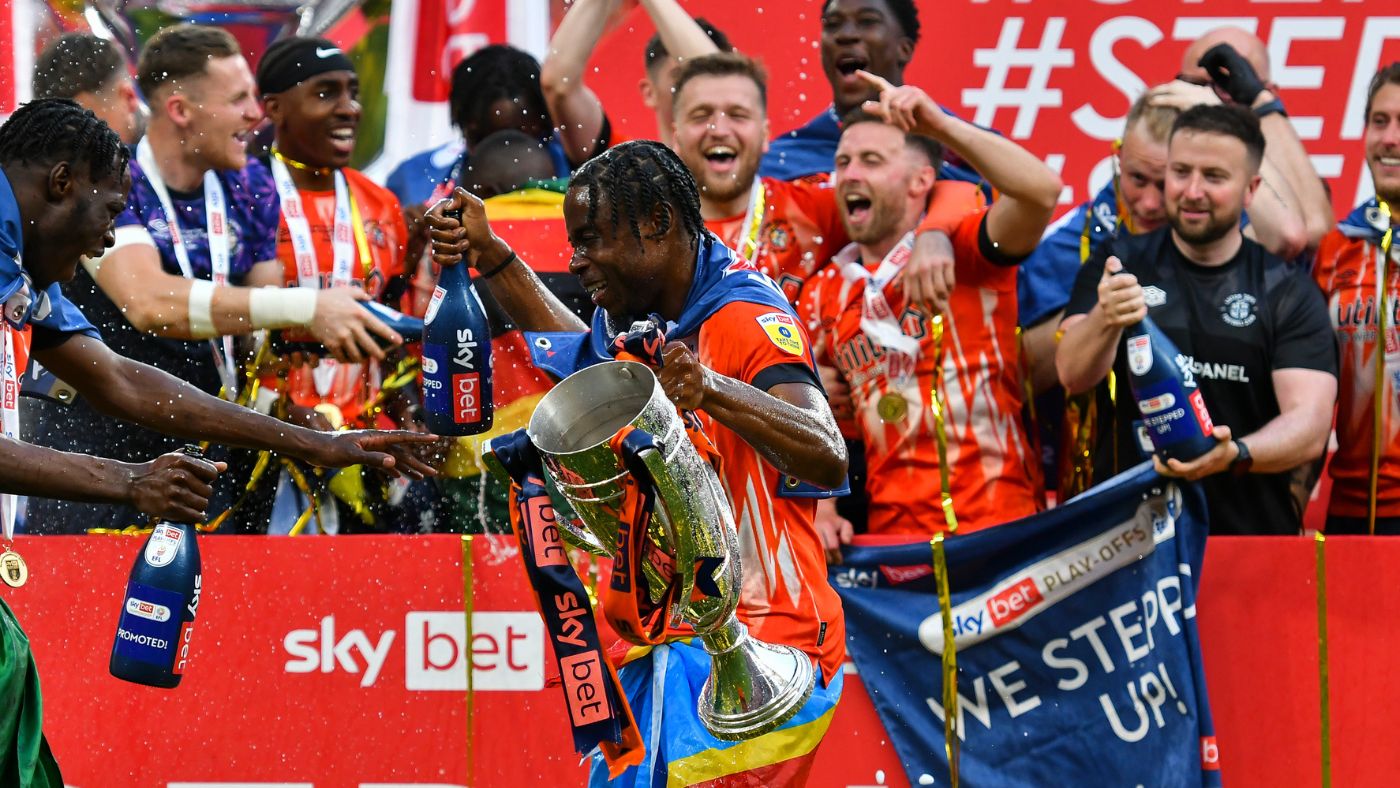 Luton Town’s extraordinary ‘resurrection’
Luton Town’s extraordinary ‘resurrection’feature The Hatters complete a fairy tale rise from non-league to the Premier League
-
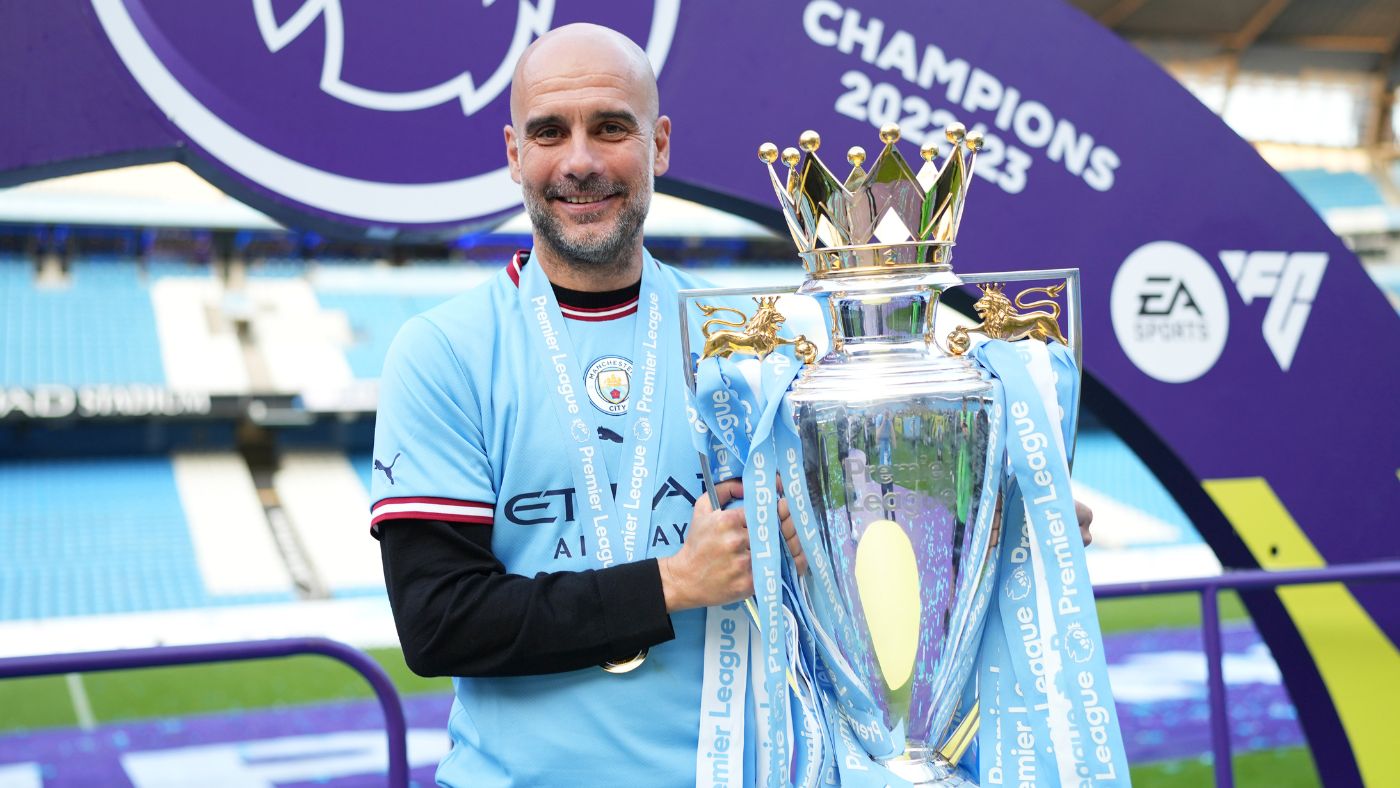 Man City: can ‘one of the best sides in history’ win the treble?
Man City: can ‘one of the best sides in history’ win the treble?feature Guardiola’s Premier League champions have two more trophies in their sights
-
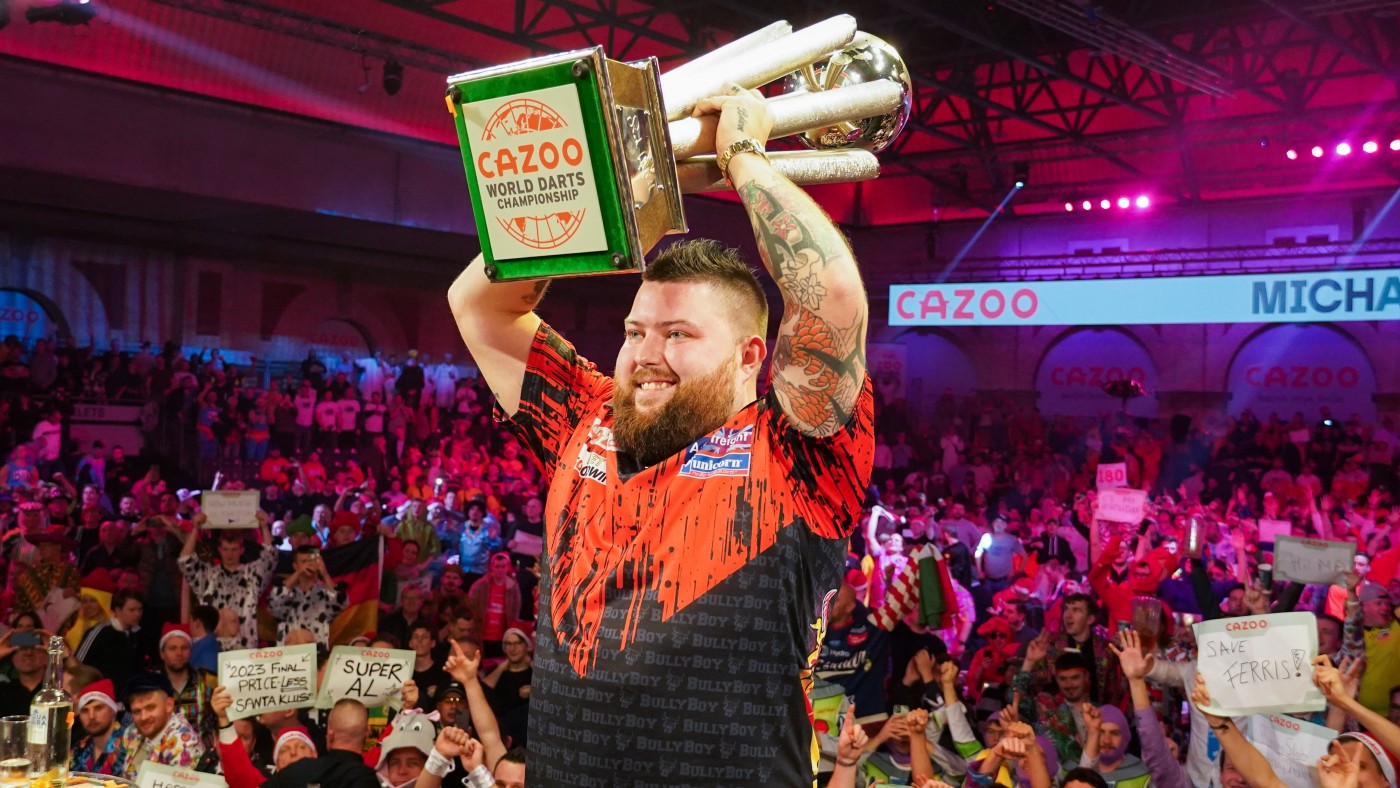 Michael Smith’s nine-darter: how darts fans reacted to the ‘greatest leg of all time’
Michael Smith’s nine-darter: how darts fans reacted to the ‘greatest leg of all time’feature It was a magical night for Smith as he beat Michael van Gerwen to win first world title